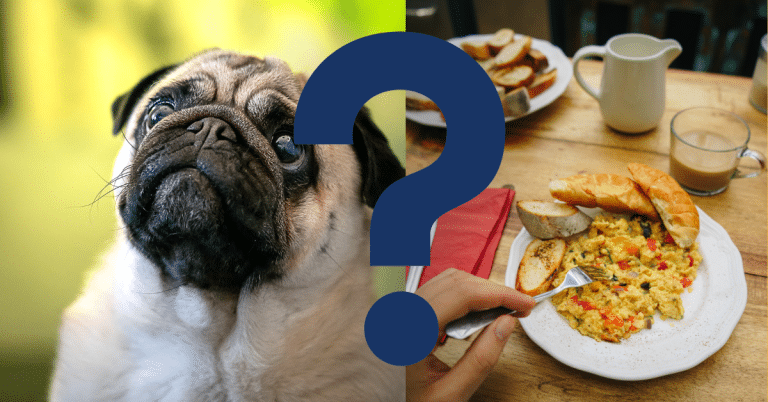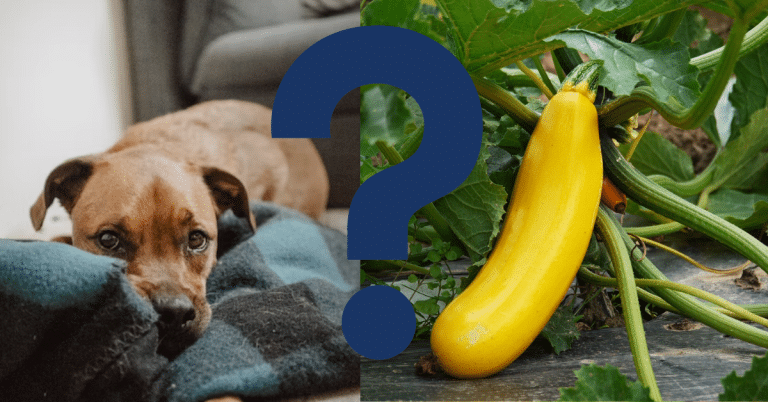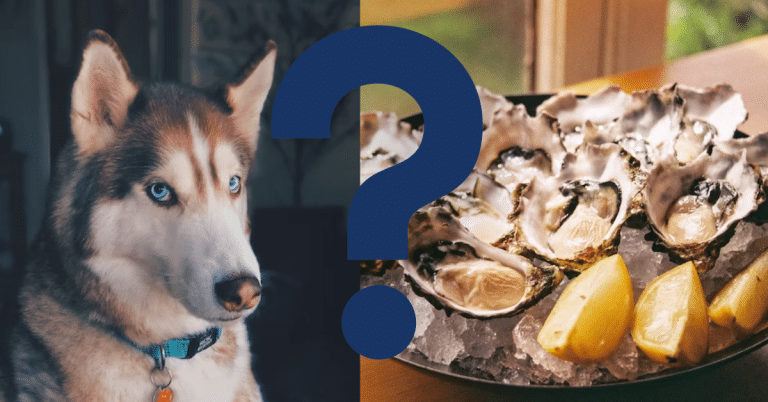Can Dogs Eat Brown Rice? A Vet’s Opinion

Brown rice is a source of carbohydrates, but can you feed Brown Rice to your dog?
Yes, dogs may consume reasonable amounts of brown rice as part of a well-balanced diet. Brown rice is high in carbs, fibre, and important elements like manganese and selenium, which are helpful to dogs.
Benefits Of Brown Rice For Dogs
When provided in moderation as part of a balanced diet, brown rice can provide various possible benefits for dogs. Here are some of the potential advantages of feeding brown rice to dogs:
- Brown rice is a good supply of carbs, a crucial energy source for dogs. Carbohydrates can offer the energy that dogs’ muscles, brains, and other essential activities require.
- Fibre Content: Brown rice has more fibre than white rice, which can promote good digestion in dogs. Fibre can help regulate bowel movements, avoid constipation, and promote gut health.
- Brown rice includes critical elements, including manganese, selenium, and magnesium, which can help a dog’s overall nutrition. These nutrients are essential for various physiological activities, including bone health, immunological function, and metabolism.
- Brown rice is generally low in fat, which might benefit dogs requiring a lower-fat diet due to medical issues such as pancreatitis or obesity. It can be an excellent choice for dogs that require a low-fat carbohydrate component in their diet.
- Brown rice is gluten-free and less prone to produce food allergies or sensitivities than other grains such as wheat or maize. This makes it a good choice for dogs with dietary allergies or sensitivities.
- Dietary Variety: Feeding brown rice to a dog can help minimize boredom and give varied textures and flavours for canines to love.
- Weight Control: Brown rice is a fantastic alternative for dogs that need to lose weight. Brown rice, as a complex carbohydrate, can help give continuous energy and keep dogs feeling fuller for longer, which may benefit in weight loss attempts.
- Nutritional Density: Brown rice has a higher nutritional density than other popular grains like white rice. It includes more B vitamins, including thiamin, niacin, and vitamin B6, which can help dogs’ general health and metabolism.
- Brown rice has a lower glycemic index than white rice, which means it digests more slowly, resulting in a delayed release of sugar into circulation. This can be useful for diabetic canines or those who need to control their diabetes.
- Brown rice contains fibre and essential fatty acids, which can help dogs have healthy skin and coats. The fibre can assist in regulating digestion, which can help prevent skin concerns associated with poor gut health. The necessary fatty acids can help contribute to a lustrous and healthy coat.
- Brown rice’s texture can slightly impact a dog’s teeth, which may help eliminate plaque and tartar accumulation and promote improved dental health.
- Cost-effective: Brown rice is often less expensive than other specialized grains or commercial dog food alternatives. It is an inexpensive option for dog owners who create their dog food at home.
While brown rice may have certain advantages, it should not be used as the primary source of nutrition for dogs. To suit their nutritional demands, dogs require a balanced diet with enough protein, fat, carbs, vitamins, and minerals. Before making any changes to your dog’s food, always consult your veterinarian to confirm that they are acceptable for your dog’s unique needs and health condition.

How To Safely Give Brown Rice To Dogs?
Brown rice may be fed to dogs safely if the following recommendations are followed:
- Brown rice should be cooked because raw rice, mainly brown rice, can be difficult for dogs to digest. Always thoroughly cook brown rice before giving it to your dog. Use plain, unseasoned brown rice and avoid any spices, oils, or flavourings that may be toxic to dogs.
- Brown rice should be offered in moderation to dogs since it is high in carbs and can lead to weight gain if fed in excess. Brown rice should only make up a modest amount of your dog’s entire food, often no more than 10-15% of their daily calorie intake.
- Combine with Other Foods: Brown rice should not be a dog’s primary source of nutrients. It should be coupled with other suitable meals to ensure a balanced diet. To make a nutritionally balanced dinner for your dog, combine cooked brown rice with lean cooked meat (such as chicken or beef), veggies, and other relevant components.
- Watch for allergic reactions: Some dogs may be allergic or sensitive to certain foods, including brown rice. If this is your dog’s first time eating brown rice, watch for indications of digestive trouble or allergic responses, such as vomiting, diarrhoea, or itching. Stop eating brown rice and visit your veterinarian if your dog responds negatively.
- Consider Your Dog’s Individual Needs: Remember that every dog is different and has varied nutritional needs. When choosing the optimum amount of brown rice to feed your dog, consider age, breed, size, exercise level, and overall health. Consult your veterinarian to verify that you are fulfilling your dog’s specific needs.
- Properly store: To avoid spoiling, store cooked brown rice in sealed containers in the refrigerator for no more than a few days. Any leftover brown rice lying at room temperature for a long time should be discarded because it may have become infected with bacteria.
- Seek Professional Help: If you’re unsure how to safely give brown rice to your dog or have any particular health issues or dietary restrictions, it’s always best to speak with your veterinarian. Your veterinarian may make customized nutritional suggestions based on your dog’s specific needs, ensuring their food is balanced and appropriate for their health and well-being.
If you follow these rules and speak with your veterinarian, you may safely introduce brown rice into your dog’s diet as part of a balanced and healthy meal plan.
Will Brown Rice Make A Dog Sick?
Brown rice is usually healthy for dogs, but a few cases may make them sick. One example is when brown rice is fed raw or undercooked. Brown rice that is raw or undercooked can be difficult for dogs to digest, resulting in gastrointestinal distress such as vomiting, diarrhoea, and stomach pain. To guarantee that brown rice is easily digested, thoroughly cook it before feeding it to your dog.
Another circumstance in which brown rice may make dogs ill is when it is overfed. Brown rice is heavy in carbs and calories, and giving it to dogs in excess can result in weight gain, obesity, and other health problems.
Brown rice should be fed to dogs in moderation and as part of a balanced diet, considering their unique nutritional needs and overall health status.
Some dogs, like people, may have allergic responses to brown rice. Allergic responses can include stomach problems, skin problems, itching, and other symptoms. If your dog has an allergic response after eating brown rice, stop feeding it and visit your veterinarian. Finally, dogs with specific medical issues, such as diabetes, gastrointestinal diseases, or dietary limitations, may have difficulty digesting brown rice. Dogs with diabetes, for example, may need to monitor their carbohydrate intake constantly, and brown rice, which is heavy in carbs, may not be acceptable for them. If you have any worries about feeding brown rice to your dog, you should assess your dog’s particular health needs and check with your veterinarian.
To summarize, while brown rice is generally healthy for most dogs, ensuring it is properly prepared, served in moderation, and appropriate for your dog’s unique health needs is critical. Monitoring your dog for symptoms of digestive trouble, allergic reactions, or other negative consequences is critical. Talking with your veterinarian can give personalized advice on properly adding brown rice to your dog’s diet.

Vet’s Summary
Brown rice is typically healthy for dogs to consume but must be well cooked before giving to avoid gastric distress. Brown rice can cause weight gain and obesity in dogs if they overeat. Thus it should be offered in moderation as part of a balanced diet. Brown rice may cause allergic responses in particular dogs, and dogs with specific medical problems may not take it well. If you are concerned about feeding brown rice to your dog, contact a veterinarian, especially if they have specific dietary limitations, such as diabetes.
Brown rice may be a source of prebiotic fibre in dog probiotics, which is good for intestinal health. Probiotics are a form of probiotic. Brown rice is typically healthy for dogs to consume but must be well cooked before giving to avoid gastric distress. Brown rice can cause weight gain and obesity in dogs if they overeat. Thus it should be offered in moderation as part of a balanced diet. Brown rice may cause allergic responses in particular dogs, and dogs with specific medical problems may not take it well. If you are concerned about feeding brown rice to your dog, contact a veterinarian, especially if they have specific dietary limitations, such as diabetes.
Videos To Watch
Here is a video you can watch if you want to know about dogs eating brown rice:






